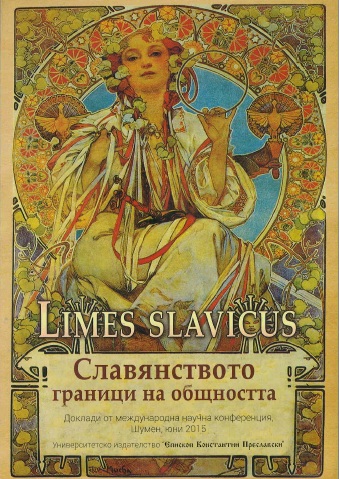Славянская идея в русской имперской идеологии ХVІІІ века и политика историографии эпохи Барокко и Классицизма: образная символика, сюжеты, сценарии власти
The Slavonic Idea in 18th Century Russian Imperial Ideology and the Policy of Historiography at the Time of Baroque and Classicism (imagery symbolism, story lines and power scenarios)
Author(s): Denka KrystevaSubject(s): Language and Literature Studies, Studies of Literature, Russian Literature
Published by: Шуменски университет »Епископ Константин Преславски«
Keywords: Slavonic idea; Baroque; Classicism; monarchy scenarios; Mauro Orbini; Peter the Great; Catherine the Great
Summary/Abstract: The article looks into the place of the Slavonic idea in the historiographic styles of Baroque and Classicism and the policy of historiography for integrating the myth of the Slavonic Kingdom in the ideology and scenarios used by the Russian monarchy at the times of Peter the Great and Catherine the Great. The baroque stylistics used in establishing Power and Glory as the main political concepts in the imperial model created by Peter the Great, is built around the Biblical narrative of Yaphet and his kingdom, the medieval literary Legend of the brothers Sloven and Russ, andMauro Orbini’s Kingdom of the Slavs. The colonial project of building a New Russia at the time of Catherine the Great also makes use of the Slavonic idea, creating more specifically a Slavonic Antiquity with its mythology of state harmony and morally healthy society, this time by using the expressive means of Classicism and Enlightenment. The article discusses the way Slavonic myths are used by the Empress in creating a political reality - her own writings use the allegory of ‘summoning a German to rule over Slavs’ (from The life of Ruricj, and her cultural undertakings - the building of the towns of Ekaterinoslav and Slavyansk. Finally, as a summary of this type of ideological creation, the article discusses Bogdanovich’s drama Slavs, and puts forward the idea of a Slavic scenario in the construction of monarchy at the time of Catherine, which parallels the Greek project in her politics.
Journal: Limes Slavicus
- Issue Year: 2016
- Issue No: 1
- Page Range: 198-214
- Page Count: 17
- Language: Russian

